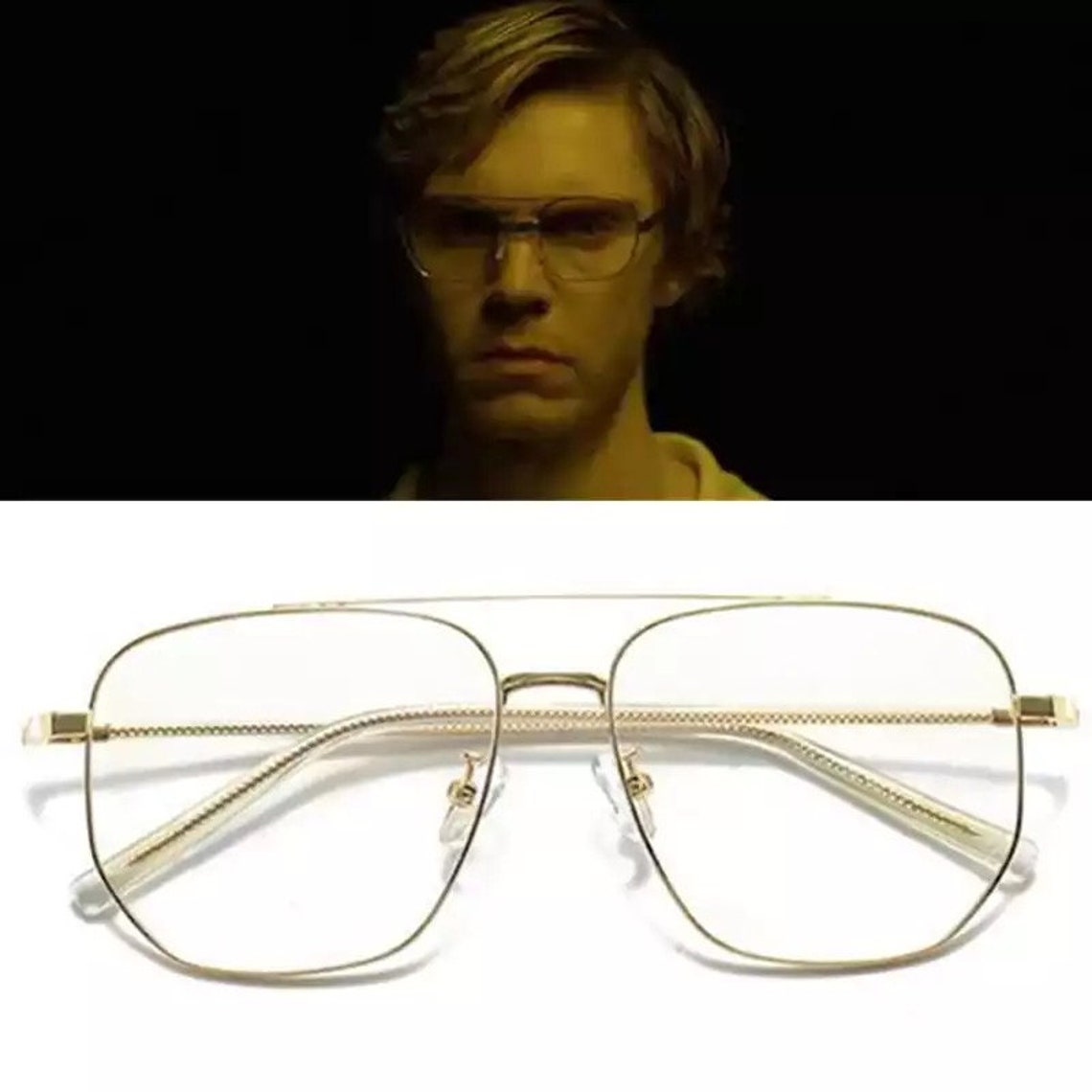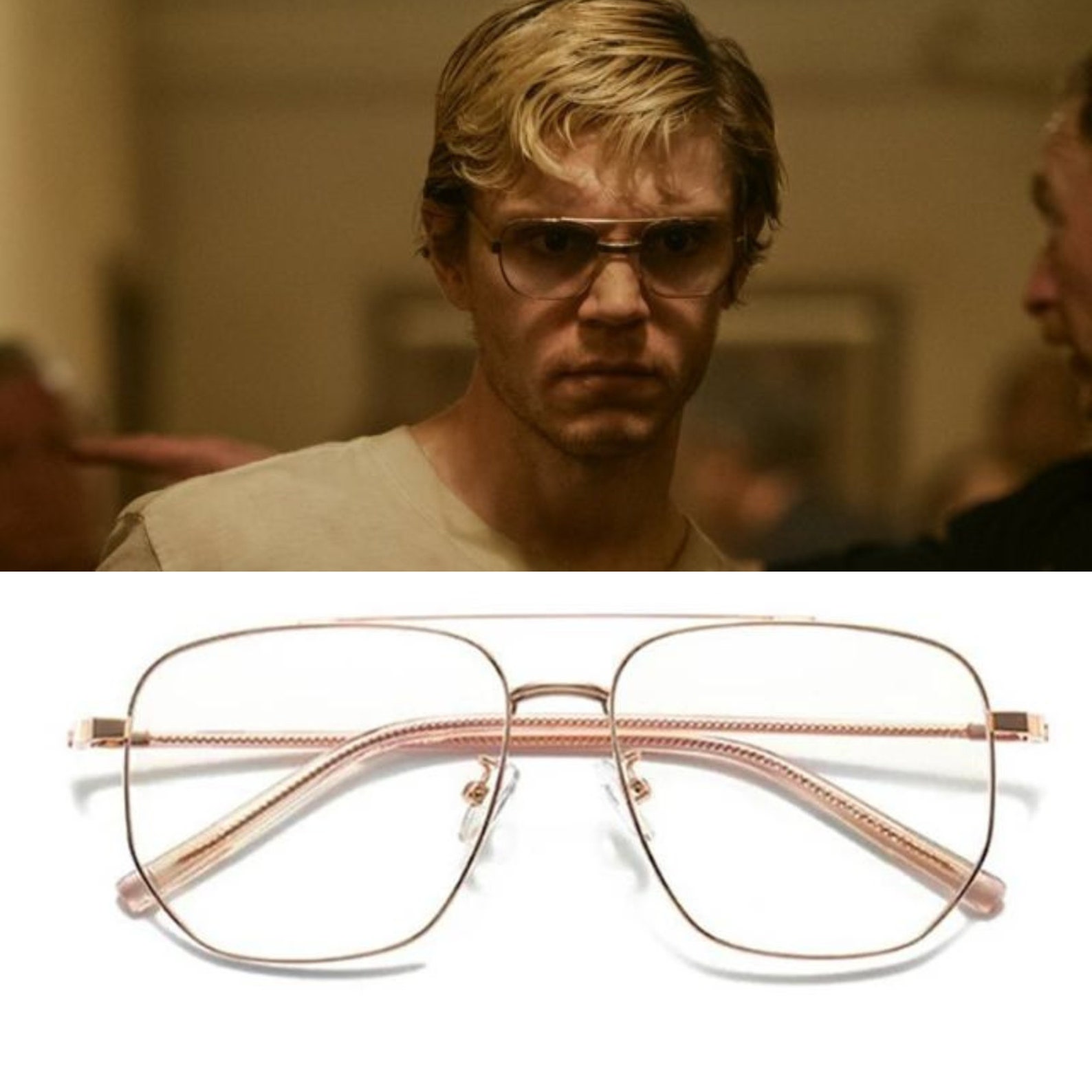Jeffrey Dahmer's Glasses: Up For Sale? The Shocking Truth!
Could a simple pair of glasses hold the key to unlocking the enigma of a serial killer? The answer, for those captivated by the macabre, lies in the $150,000 price tag attached to Jeffrey Dahmer's prison-worn spectacles. This seemingly ordinary item has become a focal point of fascination, controversy, and a stark reminder of the dark corners of the human psyche.
Published on October 2, 2022, at 1:00 AM PDT and updated at 9:56 AM, the news sent ripples through the true crime community. The sale, orchestrated by Cult Collectibles, a Canadian true crime media marketplace, offers a chilling glimpse into the life of one of America's most notorious murderers. Taylor James, the owner of Cult Collectibles, is the individual offering the glasses for sale. These are not just any glasses; they are the tangible remnants of Dahmer's time in prison, a period that followed his heinous crimes and marked the end of his life.
| Attribute | Details |
|---|---|
| Full Name | Jeffrey Lionel Dahmer |
| Born | May 21, 1960, in Milwaukee, Wisconsin, USA |
| Died | November 28, 1994, in Columbia Correctional Institution, Portage, Wisconsin, USA |
| Known For | Serial killer, sex offender, and necrophile; committing the murders of 17 young men and boys between 1978 and 1991. |
| Crimes | Murder, sexual assault, dismemberment, cannibalism, necrophilia. |
| Victims | 17 male victims |
| Imprisonment | Served time in Columbia Correctional Institution, Portage, Wisconsin. |
| Cause of Death | Beaten to death by a fellow inmate. |
| Notable Artifacts | Prison glasses (currently for sale), bible, tax forms, psych report, murder weapons, furniture and other personal belongings. |
| Reference | Wikipedia |
The offer doesn't stop with the glasses. The web page advertising the sale also features other items once belonging to Dahmer, including his bible, tax forms, and a psych report. This comprehensive collection of artifacts underscores the morbid fascination surrounding the killer, turning his personal effects into highly sought-after collectibles. The controversy surrounding the sale of such items highlights the complex ethical questions surrounding the commodification of true crime. Is it exploitative? Does it offer a form of closure? Or does it simply feed a dark fascination with the macabre?
The allure of Dahmer's glasses extends beyond their mere association with a notorious criminal. The eyewear, often described as aviator-style, has become a recognizable symbol in popular culture, reflecting the broader interest in true crime narratives. The influence of his glasses on media representation is undeniable. The Netflix series "Monster: The Jeffrey Dahmer Story" further propelled the glasses into the public consciousness, with the actor portraying Dahmer also sporting similar eyewear. However, the series, and the various portrayals in films and television, have also ignited debates about the responsibility of creators in depicting such sensitive subjects.
The glasses themselves, as items, are not merely accessories but objects of intense scrutiny. What brand were they? What model? Where were they made? These seemingly trivial details fuel the desire to understand and categorize, adding another layer of complexity to the narrative. The article states that the actual murderer wore different kinds of Z87 aviator glasses made by Titmus sometime in the early 1970s. Whereas the "The guy on the Netflix show wore Styleguard II Z87 aviator glasses by American Optical made in the late 1960s. The glasses by American Optical are what Titmus would later copy."
The market for true crime memorabilia is thriving, yet it exists in a moral grey area. The selling of items associated with Dahmer, such as his glasses, raises significant ethical questions about profiting from the notoriety of a serial killer. The sale fuels discussions about the boundaries of taste, respect for victims, and the potential exploitation of human suffering for financial gain. The article mentions that the collector, Adamovich, is planning to keep the glasses, perhaps demonstrating a different perspective on the value of these items.
The controversy is not just about the sale, but about the very nature of true crime fandom. The fascination with Dahmer, fueled by documentaries, television shows, and now, the sale of his personal belongings, reflects a deep-seated cultural interest in the dark side of humanity. The article touches on the criticism from the victims' relatives, highlighting the emotional toll that this persistent public interest has on those directly affected by Dahmer's crimes. The web page explores the morbid fascination with the serial killer Jeffrey Dahmer and his items, such as his glasses, murder weapons, and furniture. It also discusses the controversy surrounding Netflix's series "Monster: The Jeffrey Dahmer Story" and the criticism from the victims' relatives.
The narrative surrounding Dahmer's glasses is further complicated by the comparison with other serial killers. Jeffrey Dahmer is not the only notorious murderer who sported aviator sunglasses. Learning about other killers who donned similar eyewear and why they might have chosen them is a fascinating aspect to the story.
The article quotes Adamovich, who claims "The provenance is 100 percent airtight that those are Jeffrey Dahmer glasses," emphasizing the rarity and authenticity of the item. He describes their provenance and the lucky series of events that led to their acquisition. The authenticity of the glasses is crucial to their value, as is the historical context of their use. For over 30 years these glasses have been in a case, and now they are up for sale.
The details matter, down to the style of the frames. In the courtroom, Dahmer rarely wore glasses. He took them off because he couldn't stand to see the faces of the jury or of his victim's parents. This personal detail adds another layer to understanding his character, the glasses as an expression of vulnerability or a shield from the world.
The true crime genre is rife with complex moral questions. Selling Jeffrey Dahmer's glasses or other personal effects can be seen as exploiting the notoriety of a serial killer for financial gain, which raises questions about the moral compass of those who seek to profit from such items. At the same time, there is a market for true crime memorabilia, and it's a complex one, reflecting a culture where the cruelest of criminals often comprise a significant portion of the zeitgeist.
The "Dahmer x Jeffrey Dahmer glasses x Do you want that serial killer drip?" is just another example of how the killer's image has been co-opted. The phrase "You know damn well you want that serial killer drip!" is part of the marketing strategy, playing on a morbid fascination with the killer. The use of this language further underscores the controversial nature of the sale and the ethical dilemmas involved.
The glasses are more than just a fashion statement, according to some. The "Dahmer's will help you murder bad fashion sense. The Dahmer's will fill you with a ravenous hunger to look good." The article highlights the influence of the glasses on pop culture and media representation. From films and television shows to literature and art, representations of Dahmer often incorporate his iconic eyewear as a visual. The article highlights the influence of the glasses on pop culture and media representation.
The article highlights the complexity of the true crime phenomenon. The exhibition offers a comprehensive exploration into this criminal phenomenon all while honouring the names and faces of the victims. The article examines how the "Monster" series turned the serial killer into a pop culture fixture once again.
The sale of these glasses for $150,000 speaks volumes about the market and the morbid fascination with Dahmer's crimes. The controversy surrounding Dahmer's glasses highlights a dark side to true crime fandom, where profit and fascination often collide with the suffering of the victims and their families.
The article also touches on the possibility that some of the items for sale, including glasses, might not belong to Dahmer. The article states that "These and the other two pairs of glasses sold by CC are most likely Lionel Dahmer's glasses." This opens up another angle about the ethics and accuracy of true crime memorabilia.
The persistence of interest in Dahmer, and the willingness to pay a significant sum for an item as personal as his glasses, points to a lasting cultural obsession. The story of Dahmer's glasses is a microcosm of the true crime phenomenon, a complex interplay of morbid fascination, ethical questions, and the lasting impact of violence on victims and society alike. The article reflects on the history of the topic, and the impact of the series and its lasting presence on the population.
The story of Jeffrey Dahmer's glasses is a cautionary tale about the perils of commodifying tragedy and the fine line between fascination and exploitation. It is a reminder that the allure of true crime must be balanced with respect for the victims and a critical examination of the motivations of those who seek to profit from human suffering. The question remains: what is the true cost of such a morbid curiosity?



